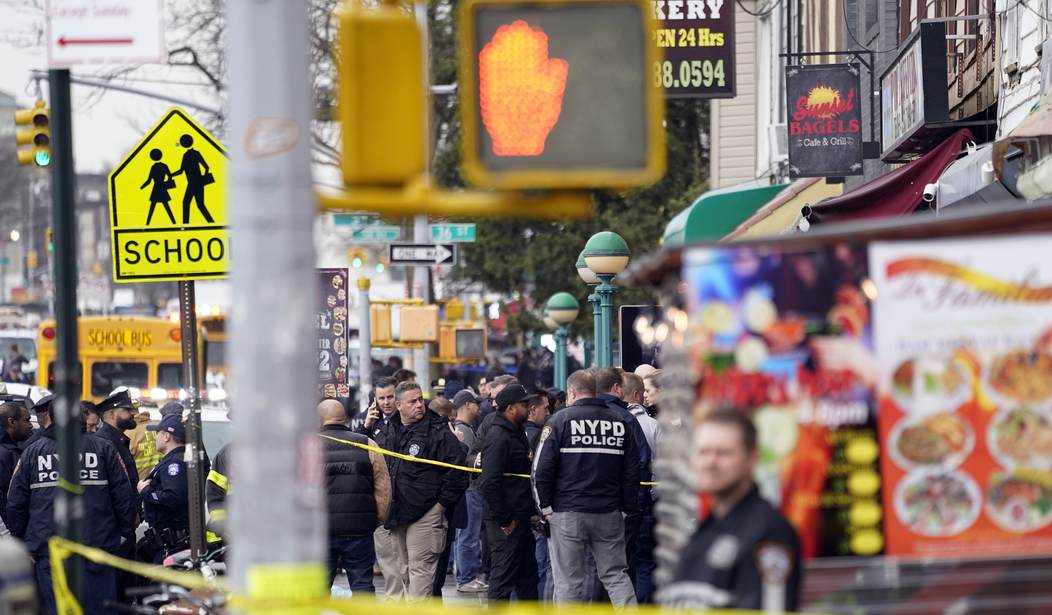Earlier this week, a madman unleashed smoke, bullets, and terror on a subway in New York, hitting multiple passengers. Before that, a man drove his car through a Christmas parade in Tennessee, killing five and wounding dozens of others.
In Ukraine, acts of genocide, terror, indiscriminate looting and rape, and other horrors of war are being inflicted on a people who deserve none of it. It is the greed of a larger, more powerful nation that has subjected Ukrainians to these horrific conditions.
Not too long ago, a black man died while a police officer placed his knee over the man’s neck, rendering him unable to breathe. Elsewhere, two men ambushed and killed a black man in Georgia.
A kid shot up his school in Florida in one of the worst shootings of that type in history. Shootings of this type are becoming more frequent, though, and it won’t be long before we see another.
A man walked up to a baseball field in Washington D.C. and opened fire on Republican politicians. Another man once approached the Family Research Center with the intent of killing people inside and shoving Chick Fil A sandwiches in their mouths afterward.
Each and every time these things happen, we try to rationalize these events and find a belief system or ideology to blame. We look for a rationale to point to and show that a person simply went astray. That they simply have a mental health issue. These rationalizations help us cope with the horror of their actions.
And while it is true that we live in an era of increased mental health crises, our instinct to rationalize and interpret these actions is a coping mechanism. We do not like to acknowledge that, sometimes, we are simply looking at acts of evil.
I mentioned that earlier this week.
Evil is far more frightening than just a bad person. A bad person just has bad motivations. We can understand them a bit and we can come to terms with the fact that the villain just took a wrong turn. But when there is just evil, we desperately seek the logic behind it. We try to find the reasons behind the evil acts a truly bad person commits, and when that person is just evil we can’t find any reasons behind it. That’s what evil is. It exists for the purpose of existing and that’s it.
It’s a heavy topic to consider, but we must confront it in our society. We are not healthy. We are not in a good place, mentally. And when we’ve let go of guiding lights, and when we’ve let go of the idea that people we don’t like or agree with are still human, we arrive at this point.
Around two thousand years ago today, a supreme act of good was accomplished that was meant to help us through times like these.
Today is Good Friday. It is the day Jesus died on the cross. In His greatest act on earth, Jesus brought us back into communion with God, but it only happened because his life on earth was diminished in the eyes of those who saw him as a threat.
Innocent of any crimes, Pilate tried to let the man go. But the crowd would not be placated and Pilate decided to let the crowd choose between freeing Jesus or an insurrectionary named Barabbas. The crowd chose Barabbas. The Roman historian Tacitus later recorded that “Christus, the founder of the name, had undergone the death penalty in the reign of Tiberius, by sentence of the procurator Pontius Pilate, and the pernicious superstition [of his divinity] was checked for a moment.”
The Romans nailed Jesus of Nazareth to a cross. The Protestant reformer Martin Luther said that there, on that cross, the greatest sinner that ever would live breathed his last and died. The sky went dark. The ground quaked. The curtain in the Jewish temple tore in half, most believing it was the act of a vandal. The first person of the Trinity turned His back on the second person of the Trinity and even the sun refused to shine on Christ as the sins of mankind, past, present, and future were placed on Him to satisfy God’s wrath. The curtain tore because Immanuel was with us. We no longer were separated from God by the veil. Christ restored us to God.
Evil exists. It was evil that turned Christ over to Pilate. It was evil that crucified Him. But, it was a sacrifice in the name of love that turned those evil acts into redemption for all.
It’s important to note that Jesus could have walked away. In the Garden of Gethsemane, He begged God to take the burden of what he would endure off his shoulders. In a moment of weakness, Jesus was terrified of his own future. On the cross, he cried out, asking God why he had abandoned him. These are very human moments of weakness, but ones he endured because it was for the good of all.
That one act of good restored all of us, including the ones who commit acts of evil in the world today. It allows for those who succumb to that darkness to find a path home in this life or the next.
But that redemption cannot come if we don’t, as a society, reinstitute a belief in the equality of life. We have to stop devaluing and dehumanizing those we oppose or disagree with. When we no longer see them as living equals, we are more likely to treat them as expendable. And the life Jesus gave up His for would be meaningless.













Join the conversation as a VIP Member